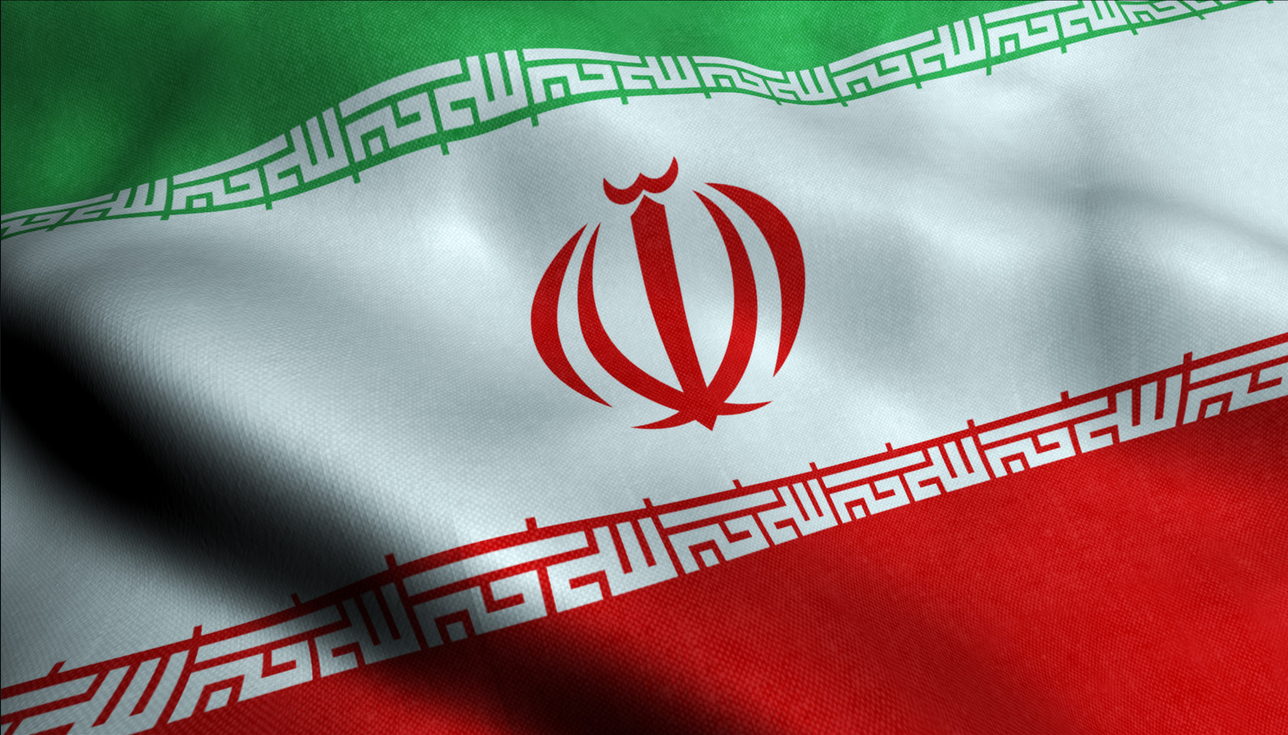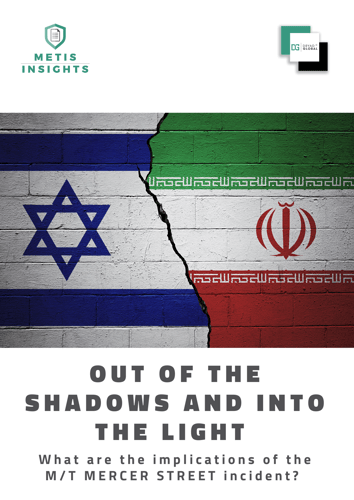5 min read
Why is Iran focusing on its maritime capabilities?
By: Israel Hayom on October 3, 2023 at 9:00 AM

Iran continually seeks to enhance its naval fleet and create an impression of considerable operational capabilities. In its conflict with the US, Iran focuses on naval forces not only because the Gulf waters are the primary arena of conflict but also because Iran's maritime capabilities far exceed its aerial capabilities.
Maritime influence has long been a point of interest for Iranian strategists. Iranian naval vessels have been trying to travel across international waters. They have recently announced their intention to sail in the Antarctic region and have previously declared their presence near the US' maritime borders in the Atlantic Ocean. These actions are part of efforts to project their power and respond to the American military presence in the Gulf.
Iran continually seeks to enhance its naval fleet and create an impression of considerable operational capabilities. In its conflict with the US, Iran focuses on naval forces not only because the Gulf waters are the primary arena of conflict but also because Iran's maritime capabilities far exceed its aerial capabilities. Therefore, Iran relies on them to confront what it perceives as American pressures coming from its military presence in the Gulf region.
The Iranian Navy and the Revolutionary Guards Navy are working on acquiring advanced frigates, as well as enhancing their anti-ship missile systems. Sometimes, they exaggerate when talking about some of their naval vessels, describing them as "destroyers." However, this does not negate that their focus on developing their naval arsenal will eventually lead to a naval force that may threaten major countries' fleets, whether in the Gulf or other maritime regions. Among these regions is the Atlantic Ocean, where Iranian military leaders appear determined to send their naval vessels occasionally.
At the present stage, Iran is concentrating on developing missile systems capable of threatening American naval vessels. They recently announced the development of a maritime cruise missile called "Abu Mahdi Al Muhandis" with a range of 1000 kilometers. This missile joins Iran's arsenal of multi-purpose missiles and was described by ISNA, an Iranian government-affiliated agency, as "the sharp eye over the Gulf."
Yesterday, the commander of the Iranian Revolutionary Guard Navy, Major General Ali Reza Tangsiri, stated, "We must control the seas if we want to influence the shaping of the new world order." During his speech at the fifth meeting of the policy-making council affiliated with the National Conference on New Maritime Opportunities and Threats, Major General Tangsiri stressed that Ayatollah Khamenei, the leader of the Islamic Revolution, "has instructed us to move from the Gulf toward other seas and oceans, and if we can accomplish this, it will benefit future generations."
This development, described by General Tangsiri as maritime sovereignty, comes shortly after the Iranian Revolutionary Guard announced in early August that its navy asserts control over the Gulf waters. In this announcement, General Tangsiri affirmed that American aircraft carriers and helicopters now adhere to Iranian laws when passing through the Strait of Hormuz. He also noted that the Revolutionary Guard Navy has increased its fast boats' speed from ninety to one hundred knots.
Iran's declared ambition to participate actively in the "shaping of the new world order" is a strategic aspiration shared by all countries worldwide, as long as they have the necessary power and resources to influence geopolitics power balances and secure a seat among contenders in shaping the post-Ukraine war order. However, the question that arises here is: Has Iranian strategic thinking changed on this front? What are Iran's opportunities in achieving this goal? And how could this impact regional power dynamics, security, and stability in the Gulf and Middle East region if realized?
Undoubtedly, providing an accurate response to these questions requires thorough analysis. However, we can briefly touch upon some points related to this development. For one thing, Iran now sees the escalating global conflict between Russia and China on one side and the West led by the US on the other as an opportune moment to enhance its international influence and position. As a result, it has developed strategic partnerships with both Beijing and Moscow.
Iran has also ventured into deepening its antagonism with the West by supplying drones to Russia in Ukraine, seeking to demonstrate its capability to play an active role in major conflicts. Additionally, Iran's enthusiasm to join the BRICS bloc has multiplied, with Iranian Foreign Minister Hossein Amir Abdollahian stating that it provides "the groundwork for achieving considerable goals and developing other comprehensive strategies for government in implementing dynamic diplomacy."
It is worth noting in this statement that Abdollahian has not openly declared hostility toward the West. He mentioned that "linking a country's national interests to others' fate and to a specific international structure is a strategic mistake" and added that "multilateral cooperation with various international mechanisms can be an appropriate choice to ensure countries' maximum interests."
Some BRICS members continue to play an active role in this structure despite their good relations with the West. This clearly explains Tehran's persistence in indirect dialogue through intermediaries with Washington. Iran may find engagement in these blocs and cooperation with Russia and China a means to secure considerable concessions in any negotiations with the West particularly regarding the Iranian nuclear program.
Iran sees troubled international environment as a suitable moment to enhance its regional and international influence with full confidence that the Biden administration has no desire for any military confrontation. Consequently, the commander of the Iranian Navy recently announced that "any ship wishing to pass through Strait of Hormuz must inform us of its nationality, cargo type and destination in Farsi. If it fails to do so, we will pursue it." Meanwhile, Iran's Foreign Ministry spokesperson, Nasser Kanaani, stated that "Iran is the most effective state in ensuring maritime security in Gulf and regional and international waters. It has always guaranteed safe passage of ships through the Strait of Hormuz."
These statements, made in the context of US accusations against Iranian Revolutionary Guards of threatening maritime navigation and detaining commercial ships, indicate that Iran's actions on the ground go beyond regional cooperation to ensure maritime security. Instead, they solidify Iranian unilateral hegemony over regional waters.
All of the above reflects Iran's self-assuredness in having what is often described in Iranian political discourse as "unmatched strength." The reality, however, is that Iran's naval power, ranked 17th globally, cannot achieve maritime sovereignty in open oceans and high seas as envisioned by Iranian leaders. Nonetheless, it can carry out tasks that threaten navigation in vital maritime passages in the region. Autonomous drones, fast boats, frigates, and other small vessels can threaten major nations' fleets in regional waters. This aligns with Iran's military doctrine centered around proxy warfare.
It is likely that "orders" from Supreme Leader Ayatollah Ali Khamenei, as alluded to by General Tangsiri, to venture beyond regional waters and be present in high seas mean having the necessary capabilities for engaging in asymmetrical warfare in open oceans as well. This could serve as a considerable strategic pressure card on American naval movements amid growing potential Iranian threats.
Source: Israel Hayom
Related Posts
Rising Tensions in the South China Sea: The..
The South China Sea, rich in resources and critical for global trade, has become a key geopolitical..
How maritime law enforcement can combat China’s..
In recent events, China's Coast Guard has displayed aggression in the South China Sea, notably..
Chinese Data Law Adds to Global Shipping..
Ships in Chinese waters are disappearing from tracking systems following the introduction of a new..





